Modified distal shoe space maintainer: noninvasive and functional
Expertise Clínica
INTRODUCTION: Space maintenance after prematureloss of primary second molars is imperative to preventmesialization of the permanent first molar, particularlyif it has not yet erupted. The distal shoe and its variationsare among the types of space maintainers described in theliterature. However, due to the need to insert it subgingivallyto achieve direct contact with the alveolar bone, itbecomes the main way for infectious agents. Therefore itis an orthodontic appliance rarely used in clinical practice.Furthermore, this type of maintainer is not functional,as it does not prevent extrusion...
Autores: Luciana Duarte Caldas, Eduardo Franzotti Sant`anna, Gabriela Mancia de Gutierrez,

Eu costumo dizer para meus alunos que não se esqueçam que o sucesso da sua Ortodontia de amanhã é resultado dos seus estudos, suas leituras e sua dedicação de hoje! Como Philip Pullman já dizia: “Nós não precisamos de uma lista de certos e errados, tabelas do que fazer e o que não fazer. Precisamos de livros, tempo e silêncio”. A leitura, outrossim, abre as janelas do entendimento e desperta do sono à sabedoria. Às vezes, a leitura nos transforma até em super-heróis, não é...
Leia mais
O Professor Murilo Fernando Neuppmann Feres nasceu em Araxá/MG e obteve seu diploma na Faculdade de Odontologia de Ribeirão Preto na Universidade de São Paulo em 2002. Quatro anos após sua graduação, se especializou e se tornou Mestre em Ortodontia pela Pontifícia Universidade Católica de Minas Gerais. Concluiu sua formação na Universidade Federal de São Paulo, onde obteve o grau de Doutor em Medicina, avaliando desfechos em Otorrinolaringologia úteis para a prática ortodôntica. O...
Leia mais
INTRODUÇÃO: A simplificação do planejamento ortodônticos tem sido a regra nos últimos anos, chegando ao extremo de os ortodontistas delegarem a empresas essa responsabilidade que, em última análise, é o que justifica a existência da nossa própria especialidade. A adoção de rigorosos protocolos de diagnóstico e planejamento, bem como o conhecimento e a aplicação da correta biomecânica, são diferenciais que permitem ao clínico dominar todos os passos do tratamento, com...
Leia mais
INTRODUÇÃO: A transposição e a impacção dentárias são distúrbios relacionados à erupção ectópica ou à falha na erupção dentária. A transposição entre o incisivo lateral e o canino normalmente ocorre na maxila, sendo uma anomalia raramente observada na mandíbula. A correção da transposição representa um grande desafio na mecânica ortodôntica, principalmente nas transposições completas, exigindo estratégias mais complexas para efetuar o movimento radicular dos dentes...
Leia mais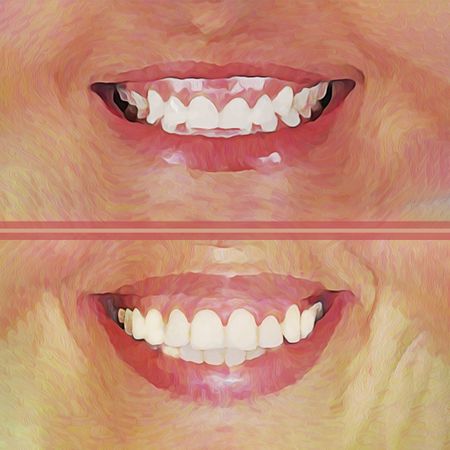
INTRODUÇÃO: Alguns pacientes portadores de sorriso gengival (SG) podem ser tratados, exclusivamente, pela Ortodontia. Os casos que apresentam como fatores etiológicos a extrusão e lingualização, ou a protrusão dos incisivos superiores exigem que a correção do excesso de exposição gengival seja realizada por meio de movimentação dentoalveolar. OBJETIVO: Esse artigo irá analisar a relação existente entre o SG e o posicionamento dos incisivos superiores, identificando se a...
Leia mais
INTRODUÇÃO: A manutenção do espaço após a perda precoce de segundos molares decíduos é imperativa para evitar a mesialização do primeiro molar permanente, especialmente se esse ainda não irrompeu. Entre os tipos de mantenedores de espaço descritos na literatura, encontram- se o distal shoe e suas variações. Entretanto, devido à necessidade desse aparelho ser inserido subgengivalmente para se conseguir contato direto com o osso alveolar, ele pode se tornar a porta de entrada para...
Leia mais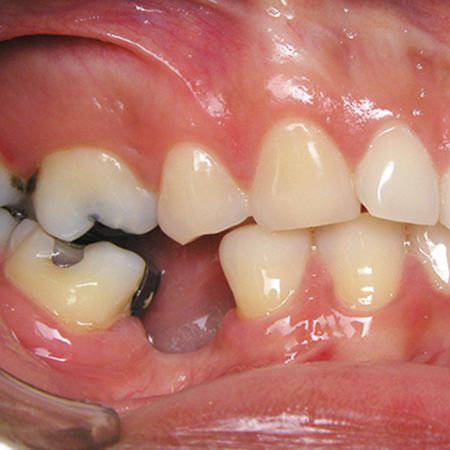
OBJETIVO: Apresentar o caso clínico de um paciente com 27 anos de idade, que buscou tratamento para melhorar a estética do sorriso e corrigir dentes inferiores mal posicionados, antes da reabilitação protética. RELATO DO CASO: O paciente apresentava um sorriso assimétrico, com vários aspectos negativos. Na avaliação intrabucal, apresentava relação de caninos em Classe I no lado direito e Classe II no lado esquerdo, além de severa inclinação mesial e infraoclusão do primeiro molar...
Leia mais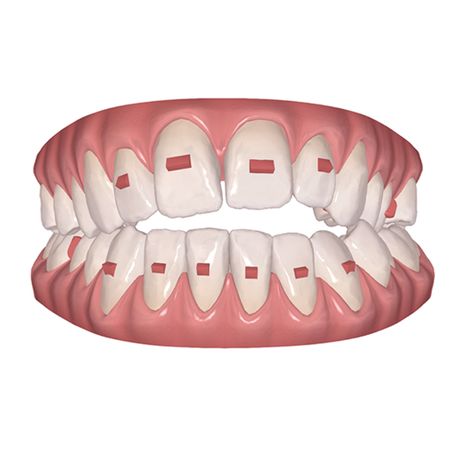
INTRODUÇÃO: O tratamento com alinhadores transparentes provou ser eficiente na correção da mordida aberta anterior, que pode ser promovida pela intrusão dos dentes posteriores ou extrusão dos anteriores. Considera- se que os alinhadores transparentes são eficientes na intrusão dos dentes posteriores, mas ineficientes na extrusão dos anteriores, e muitas vezes requerem o uso de acessórios como elásticos intrabucais. OBJETIVO: O presente relato de caso demonstra um protocolo de...
Leia mais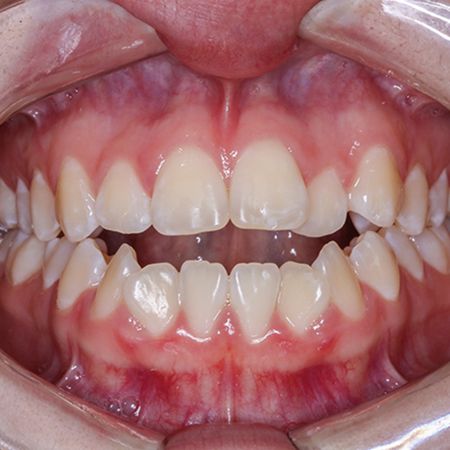
OBJETIVO: O objetivo do presente artigo foi relatar o caso clínico de uma paciente com má oclusão de Classe III de Angle e mordida aberta anterior. CASO CLÍNICO: A paciente havia sido submetida previamente a um tratamento ortodôntico, no qual não se conseguiu uma oclusão ideal. Na busca de um melhor equilíbrio esquelético e oclusal, decidiu-se pelo retratamento ortodôntico. Planejou-se uma abordagem ortodôntico-cirúrgica de avanço da maxila com rotação anti-horária da...
Leia mais
OBJETIVO: Fundamentar que as reabsorções radiculares não têm causas sistêmicas, revisando os conceitos históricos e duas teses de doutorado sobre o assunto. METODOLOGIA: Será apresentada uma síntese sobre as duas teses, para que possam ser assimiladas pelos clínicos ortodontistas. DISCUSSÃO: Antigamente, os resultados e conceitos eram relacionados com a tentativa de usar as causas sistêmicas como uma forma de justificar as iatrogenias, que geralmente estavam associadas às...
Leia mais
I often tell my students not to forget that thesuccess of your orthodontics tomorrow is a resultof your studies, your reading, and your dedicationtoday! As Philip Pullman already said:“We don’t need lists of rights and wrongs, tablesof do’s and don’ts: we need books, time, and silence.”Reading, moreover, opens the windowsof understanding and awakens from sleep towisdom.
Leia mais
Professor Murilo Fernando Neuppmann Feres wasborn in Araxá/MG and obtained his diploma at theRibeirão Preto School of Dentistry of the Universityof São Paulo in 2002. Four years after he graduated,he specialized and became a Master of Orthodonticsat the Pontifical Catholic University of Minas Gerais.He concluded his studies at the Federal University ofSão Paulo, where he obtained the degree of Doctorof Medicine, assessing outcomes in Otorhinolaryngologythat were useful in orthodontic...
Leia mais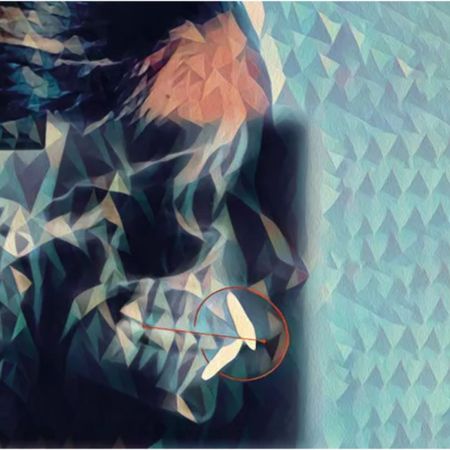
INTRODUCTION: The simplification of orthodonticplanning has been the rule in recent years, reaching theextreme of orthodontists delegating this responsibility—which, ultimately, is what justifies the existence of ourspecialty—to some companies. The adoption of rigorousdiagnostic and planning protocols, as well as the knowledgeand application of the correct biomechanics, aredifferentials that allow the clinician to master all the stepsof the treatment, with better quality results....
Leia mais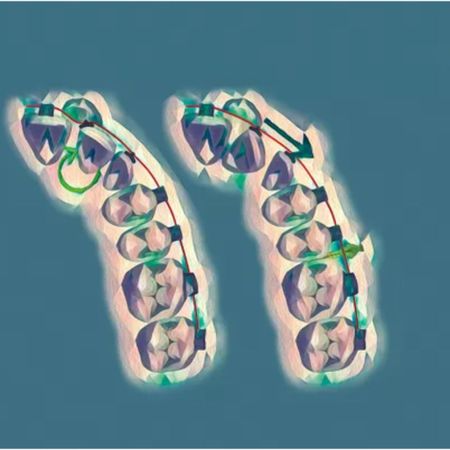
INTRODUCTION: Dental transposition and impactionare disorders related to ectopic eruption or failure ofdental eruption. Transposition between the lateral incisorand the canine usually occurs in the maxilla, being ananomaly rarely observed in the mandible. Transpositioncorrection represents a great challenge in orthodonticmechanics, especially in complete transpositions,requiring more complex strategies to perform the rootmovement of the involved teeth. OBJECTIVE: This articlepresents an...
Leia mais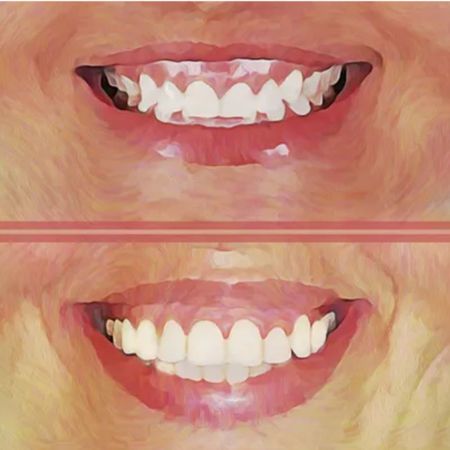
INTRODUCTION: Some patients with gingival smile (GS)can be treated exclusively with Orthodontics. Cases thatpresent as etiological factors the extrusion/lingualizationof maxillary incisors and/or maxillary dentoalveolarprotrusion require the correction of excessive gingivaldisplay to be performed by means of dentoalveolarmovement. OBJECTIVE: This article will analyze therelationship between anterior GS and maxillary incisorinclination, identifying whether the required orthodonticcorrection...
Leia mais
INTRODUCTION: Space maintenance after prematureloss of primary second molars is imperative to preventmesialization of the permanent first molar, particularlyif it has not yet erupted. The distal shoe and its variationsare among the types of space maintainers described in theliterature. However, due to the need to insert it subgingivallyto achieve direct contact with the alveolar bone, itbecomes the main way for infectious agents. Therefore itis an orthodontic appliance rarely used in...
Leia mais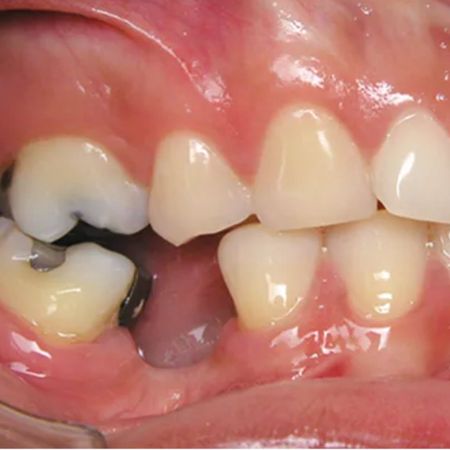
OBJECTIVE: To present the case report of a 27-year-oldmale patient who sought treatment for correcting malpositionedmandibular teeth, prior to implant placement, and toenhance smile aesthetics. CASE REPORT: He had a Class Icanine relationship on the right side and Class II on the leftside, and severe mesial tipping and infraocclusion of themandibular left first molar, which rendered the presenceof two occlusal planes. TREATMENT: Treatment consistedof using segmented mechanics with two...
Leia mais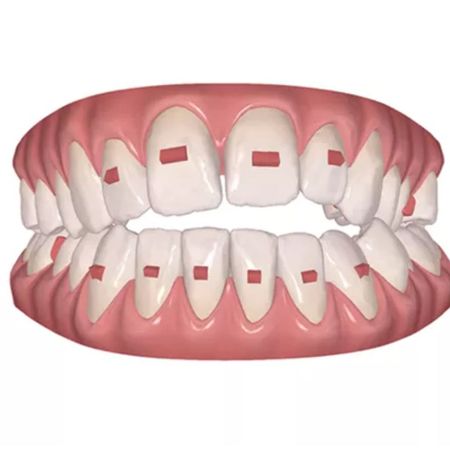
INTRODUCTION: Clear Aligner therapy has been provenefficient in correction of anterior open bite and can bebrought about by posterior intrusion or anterior extrusion.It is considered that clear aligners are efficient in posteriorintrusion and not efficient with anterior extrusion, andoften requires the usage of adjuncts like intraoral elastics.OBJECTIVE: This case report demonstrates an efficientstaging protocol and attachment geometry planning withthe Invisalign system, to bring about...
Leia mais
OBJECTIVE: The aim of this article was to report theclinical case of a patient with Angle Class III malocclusionand anterior open bite. CASE REPORT: The patient hadpreviously undergone orthodontic treatment, whichfailed to correct the malocclusion. The present treatmentconsisted of orthodontic-surgical planning, withmaxillary advancement and counterclockwise rotationof the mandible, for anterior open bite correction, andadvancement genioplasty. CONCLUSION: The resultsobtained at the end of...
Leia mais
OBJECTIVE: To demonstrate that root resorptions do nothave systemic causes, by revising historical concepts andtwo doctoral theses on the subject. METHODOLOGY: Asynthesis of the two theses will be presented, so that theycan be assimilated by orthodontic clinicians. DISCUSSION:In the past, results and concepts were related to trying to usesystemic causes as a way of justifying iatrogenesis, whichwere generally associated with technological limitationsthat existed. CONCLUSION: In cases of root...
Leia maisCopyright © 1998 - 2022 DentalGO | Todos Direitos Reservados. DentalGO é uma marca Dental Press